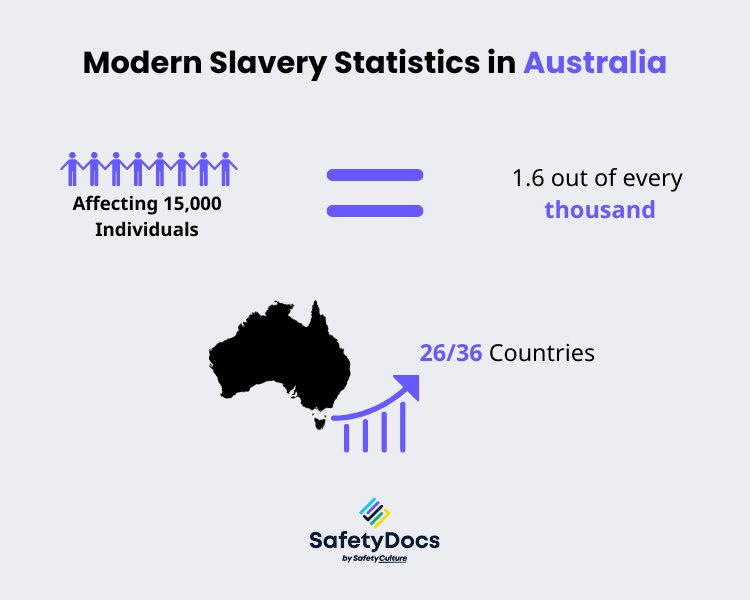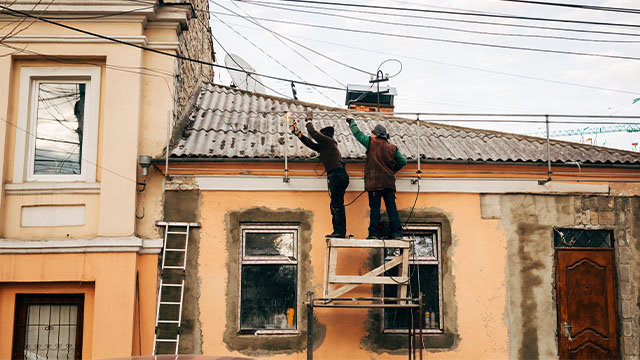It is shocking and saddening that slavery persists today despite the many strides made in human rights over the past century. In many ways, this crisis of human trafficking and forced labour is even more insidious and difficult to confront than the overt forms of slavery that plagued our past. It is a problem that affects millions worldwide, often leaving them powerless and vulnerable in the face of cruel and exploitative conditions. We must continue shining a light on this issue and work towards a more equitable society.
What is Modern Slavery
While slavery has been prevalent throughout history, the term "modern slavery" gained prominence in recent decades to shed light on modern forms of exploitation. Modern slavery describes the contemporary form of human trafficking, encompassing practices such as forced labour, debt bondage, human trafficking, forced marriage, and child labour. Unlike historical slavery, it may not always involve physical chains or shackles but relies on coercion, manipulation, and control over vulnerable individuals.
Statistics in Australia
According to the Global Slavery Index, 15,000 individuals are estimated to be living under conditions of modern slavery in Australia. To put this into perspective, this translates to a prevalence of 1.6 individuals ensnared in the clutches of modern slavery for every thousand people residing in the country. In the Asia-Pacific region, Australia holds 26th out of 36 countries, a cause for concern.
Alarmingly, the accurate scale of modern slavery in Australia might be significantly larger than these figures suggest. This is mainly because only one in five victims of slavery are identified, implying that 80% of victims continue to suffer unnoticed and unsupported. Consequently, the cases that do come to light likely represent just a fraction of the actual extent of modern slavery in Australia. These statistics underscore the urgent need for increased vigilance, improved victim identification techniques, and comprehensive survivor support systems.

Forms of Modern Slavery
Modern slavery is a complex and multifaceted issue, taking many forms. Below are some of the most prevalent types:
- Human Trafficking: This involves the recruitment, transportation, or harbouring of people through force, deception or coercion to exploit them. This exploitation can take various forms, including forced labour, sexual exploitation, and organ trafficking.
- Forced Labour: Individuals are coerced into work under the threat of punishment, often tied to an unrealistic debt they supposedly owe to their employers or recruiters. This cycle ensnares them through violence, confiscation of identity papers, or the looming threat of denunciation to immigration authorities.
- Debt Bondage: Also known as bonded labour, it's the world's most widespread form of modern slavery. Workers may unwittingly find themselves labouring for inadequate or nonexistent compensation. They often pay off a loan they or their family had taken out.
- Child Slavery: Many children are trafficked into or within countries for cheap labour or sexual exploitation. Some are forcibly recruited for armed conflict, while others are sold into the worst forms of child slavery by their parents.
- Forced Marriage: Women and children are forced into a life-long servitude and are physically abused, psychologically and often sexually. They are forced to perform household chores, bear children, and are sometimes subject to violent abuse.
- Deceptive Recruitment for Labour or Service: People are promised good wages and working conditions, only to be deceived when they arrive at their destination. They often find themselves trapped in forced labour or service, unable to leave for fear of serious repercussions.
Industries Prone to Modern Slavery
- Agriculture and Fishing: Workers in these sectors, including migrant workers, can be vulnerable to exploitation due to the remote and isolated nature of the work.
- Construction: The demand for cheap labour and the transient nature of work can lead to exploitative practices in this industry.
- Garment and Textile Production: This industry is notorious for poor working conditions and the use of forced labour, particularly in countries where labour laws are weak or not enforced.
- Mining and Quarrying: Workers can be exposed to dangerous working conditions with little oversight or regulation, leading to instances of modern slavery.
- Domestic Work: Domestic workers, particularly those who work in private households, are at risk of exploitation and abuse due to the hidden nature of their work.
- Hospitality and Tourism: Low-skilled temporary workers in hotels, restaurants, and entertainment establishments can be vulnerable to exploitation.
- Manufacturing: You can find forced labour in various manufacturing supply chains, including electronics, jewellery, and goods production.
- Food Processing and Packaging: Workers in these sectors can be subject to poor working conditions, low wages, and long hours.
- Sex Industry: Sex trafficking is a form of modern slavery, with victims often forced into prostitution or commercial sexual exploitation.
- Logistics and Warehousing: Any sector with a prevalence of temporary labour is more prone to modern slavery and worker exploitation.

Addressing Modern Slavery: What Can We Do?
The fight against modern slavery requires a multifaceted approach from all stakeholders involved. Governments, businesses, civil society organisations and individuals are essential in eradicating this global pandemic.
1. Legislation and Initiatives in Australia
The following measures highlight Australia's commitment to combating modern slavery within its borders and beyond, holding corporations accountable, and supporting victims of these heinous crimes. Here are various pieces of Australian legislation and initiatives to combat modern slavery:
Australian Modern Slavery Act
The Modern Slavery Act 2018 mandates that companies operating in Australia, whose yearly consolidated revenue exceeds $100 million, must provide an annual report on the risks of modern slavery within their operations. Furthermore, they are required to detail the actions taken to mitigate these risks.
Reporting Requirements
The primary objective of the Modern Slavery Act 2018 is to address and combat the issue of modern slavery in the global supply chains of Australian goods and services. It seeks to achieve this by establishing a robust Modern Slavery Reporting Requirement. This requirement obliges certain large businesses and other entities to make annual public reports (Modern Slavery Statements) on their actions to assess and address modern slavery risks.
This is one of the steps to address the risks of modern slavery and promote ethical practices. By publicly disclosing this information, companies are held accountable for their actions and incentivised to eradicate slavery from their operations.
National Action Plan to Combat Modern Slavery 2020-25
This strategic plan outlines Australia's comprehensive response to modern slavery for the next five years. It serves as a framework to combat this issue effectively, ensuring the eradication of such heinous practices in society. It focuses on the prevention, disruption, investigation, and prosecution of modern slavery crimes and support and protection for victims.
Overseas Aid Programs
The Australian Government continues to fund overseas aid programs to combat modern slavery, increasing this funding as deemed necessary. These programs aim to reduce the vulnerability of people to exploitation and abuse.
NSW Modern Slavery Act
New South Wales (NSW) also passed its own Modern Slavery Act in 2018, recognising the prevalence of modern slavery and taking steps to address it. This Act requires entities based or operating in NSW that meet the threshold of $50 million annually to report on their actions to address modern slavery risks.
2. Individual Responsibility
Individuals are responsible for ensuring that their actions are not contributing to the perpetuation of modern slavery. Here are some ways we can all take action:
Be an Informed Consumer
We should be aware of what we buy, where it comes from, and any potential risks in the supply chain. We can support businesses taking proactive steps to eradicate modern slavery from their operations.
Raise Awareness
One of the most effective ways of combating modern slavery is raising awareness and educating others about its prevalence. We can share information about what we learnt with family, friends, and colleagues.
Support Charities and NGOs
Charities and non-governmental organisations (NGOs) are at the forefront of the fight against modern slavery. Supporting these organisations can help further their efforts to provide aid and assistance to victims of modern slavery.
3. Business Responsibility
Companies are responsible for ensuring that their operations and supply chains are free from the risk of modern slavery. This includes:
Supply Chain Transparency
Businesses must ensure transparency within their supply chains to address modern slavery. They should map out all tiers of their supply networks, identify high-risk areas, and conduct thorough due diligence. By understanding their suppliers' practices and addressing potential risks, companies can proactively eradicate modern slavery from their supply chains.
Due Diligence Practices
Effective due diligence practices are crucial in preventing and mitigating modern slavery risks. Businesses should assess their suppliers, conduct regular audits, and engage in dialogue with stakeholders. Collaboration across industries and sharing best practices can further enhance due diligence efforts and create a united front against modern slavery.
Identify and Report Cases
One of the primary challenges in combating modern slavery is identifying and reporting cases. Victims often fear retaliation, lack knowledge of their rights, or are isolated from support networks. Strengthening reporting mechanisms, providing protection for whistleblowers, and raising awareness among vulnerable groups are vital in addressing these cases.

We Help Businesses in Addressing Modern Slavery
Identifying, assessing, and reporting cases of modern slavery can be challenging without the proper tools. SafetyDocs by SafetyCulture provides businesses with the tools required to comply with legislation and proactively identify and address modern slavery within their operations.
We are Australia's most trusted provider of safety documents, such as Safe Work Method Statements (SWMS) and Job Safety Analyses (JSA). Our documents help businesses stay compliant, identify risks, and protect workers. We can provide the tools needed to map out an entire supply chain, generate reports on slavery risks, and conduct audits of suppliers.
Check out the following documents to help you start addressing modern slavery in your workplace:
SafetyDocs is committed to helping businesses monitor their operations for signs of modern slavery, reduce risk exposure, and achieve sustainable outcomes. Contact us today about how we can help your business combat modern slavery.
Our team of experts is dedicated to providing accurate and informative content. Craig Cruickshank, our senior HSEQ advisor at SafetyDocs by SafetyCulture has reviewed this blog post to ensure the highest level of quality.
Learn more about Craig's work on LinkedIn for more industry insights.
Available for instant download and supplied in fully editable MS Word format for use in your business.
Please note that the above information is provided as a comment only and should not be relied on as professional, legal or financial advice.
Share This Article
